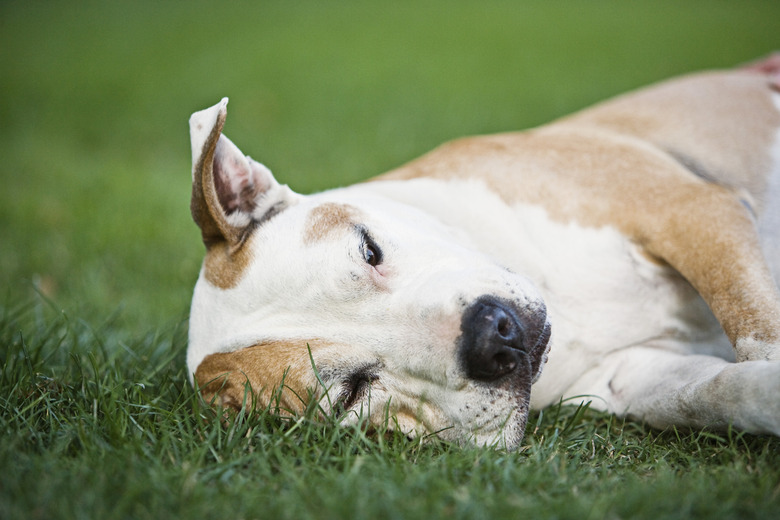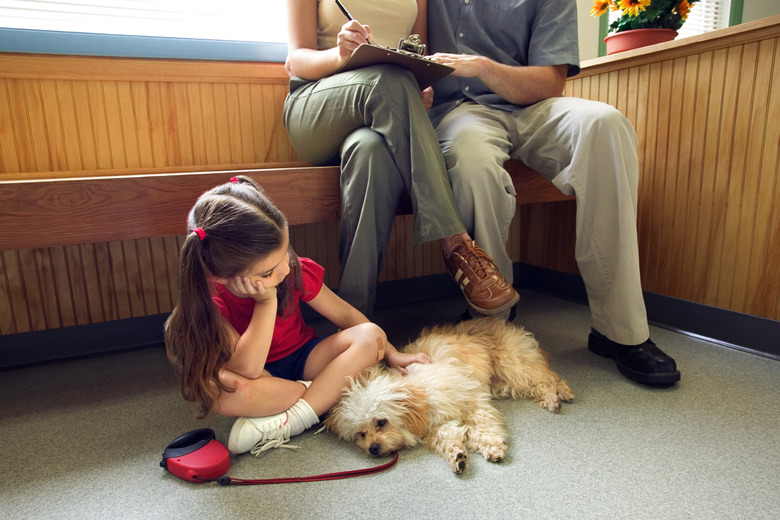Symptoms Of Malnutrition In Dogs
Some malnourished dog symptoms are easy to spot: the emaciated body with ribs poking through his skin and every part of his body, from his legs and hindquarters to his sad face, is much too thin. However, not all malnourished dogs have that skin-and-bones appearance. More subtle signs include lack of energy and a dull coat. While stray dogs often look malnourished, dogs from loving homes with ample food can also suffer from malnutrition.
Defining malnutrition in dogs
Defining malnutrition in dogs
Most people think of malnutrition as occurring when dogs don't have enough to eat, which often happens to stray dogs who don't eat regularly. However, the prefix "mal" means "bad," so malnutrition can also occur in dogs who are fed a poor diet. This can happen with commercial dry dog food that is of poor quality or when owners feed dogs a human food diet over a long period of time. Such diets can be deficient in protein, essential fats, and necessary vitamins and minerals, or they can provide an excess of any of these, which is also unhealthy and contributes to malnutrition.
Understanding malnourished dog symptoms
Understanding malnourished dog symptoms
Malnutrition in dogs often shows in the condition of the skin and coat. If the amount of protein is lacking, hair loss can occur. A diet without enough essential fatty acids can cause dry, scaly skin and ear infections. An inadequate amount of copper causes a dull, washed-out coat, while a lack of zinc can lead to skin ulcers, hair loss, and cracked skin. Dogs need different amounts of all of these at the different stages of life, which is why it's important to purchase dog food that is designed for puppies, adult dogs, and senior dogs.
A poor diet also has an effect on a dog's immune system. You might notice an increase in infections and an inability of the dog's body to fight them or normal cuts or abrasions taking a long time to heal. A diet that's too high in fat or high in overly processed food can lead to pancreatitis, which is a very serious condition that can even be life threatening. While diabetes in dogs can be genetic, it can also be the result of a poor diet, typically being fed too much food or too much of certain kinds of food.
Weakness and lethargy in a formerly energetic dog can certainly indicate illness, which could be malnutrition. Owners should be concerned by any change in a dog's personality traits and habits and call a veterinarian for advice.
Treating malnutrition with a healthy diet
Treating malnutrition with a healthy diet
Even for dogs who are severely underweight, the goal is not to help them gain weight but to get healthy. Through physical exams and blood tests, veterinarians can determine if dogs are malnourished or have another illness. If they are lacking nourishment, vets can tell from the tests what is lacking in the diet and how to make up for it. For example, if the dog is deficient in protein, the vet might suggest that an appropriate kibble be given with more meat and eggs mixed into the food bowl a little at a time, as feeding too much food at once can lead to refeeding syndrome with damage to blood cells and the heart.
Malnutrition in dogs is serious and should not be taken lightly. By acting quickly and working with your vet, you should be able to return your malnourished dog to health. Before you know it, he will be his lively, alert self again with healthy skin and a soft, shiny coat.
Always check with your veterinarian before changing your pet's diet, medication, or physical activity routines. This information is not a substitute for a vet's opinion.


